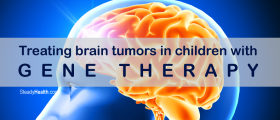
An endocrine gland is a specially structured formation made of cells that synthesize specific hormones. Once synthesized, the hormone leaves the gland and is released into the blood. Eventually, it reaches specific cells and connects with them. The connection is achieved by the presence of receptors on the surface of the cells.
Endocrine Tumors
Endocrine tumors represent a whole spectrum of different growths affecting different endocrine glands. No matter what endocrine gland is affected, all tumors can be classified as benign and malignant. Benign tumors are not invasive and cannot spread to other organs and tissues. Still, if they are located in the head (like the pituitary gland benign tumors) they may act like malignant tumors (have similar effects). Benign tumors also cause a variety of health issues if they are hormonally active. Malignant endocrine tumors are invasive, destroy the surrounding healthy tissue and easily spread to other organs and organ systems in the body.
Abdominal Benign Endocrine Tumors
Benign abdominal endocrine tumors originate from the adrenal gland and the pancreas. They are in around 50% of all cases hormonally active.
Benign Tumors of the Adrenal GlandBenign adrenal gland tumors may develop in the cortex or medulla. If they are located in the cortex and are hormonally active, the affected individual may end up with Cushing's disease or Conn's syndrome depending on the particular hormone the tumor synthesizes. If the tumor is located in the medulla of the gland, it may produce large amounts of catecholamines (epinephrine, norepinephrine). The effects of excess of catecholamines can be detrimental and the tumor which is active in such manner is known as pheochromocytoma.
Benign adrenal gland tumors are surgically treated. The entire gland or just the tumor are removed, which actually depends on several factors.
Benign Tumors of the PancreasIslet cell tumor of the pancreas is a benign, hormonally active tumor. This is a rare, slow-growing tumor which may spread and give metastases (not a general characteristic of benign tumors). Still, even if the tumor spreads to other organs, it is curable.
Only functional islet cell tumors may cause different abnormalities in the body due to hormones these tumors release into the blood. They may produce insulin, gastrin, glucagon, VIP or Somatostatin. So, according to the substance or hormone they produce, these tumors are classified in the same manner as insulinomas, gastrinomas, glucagonomas, VIPomas and Somatostatinomas. Both non-functional and functional islet cell tumors are treated surgically. It may be sometimes a problem to detect the tumor, which can be rather small in size but release significant amount of the hormone responsible for severe symptoms and signs.
















Your thoughts on this
Loading...